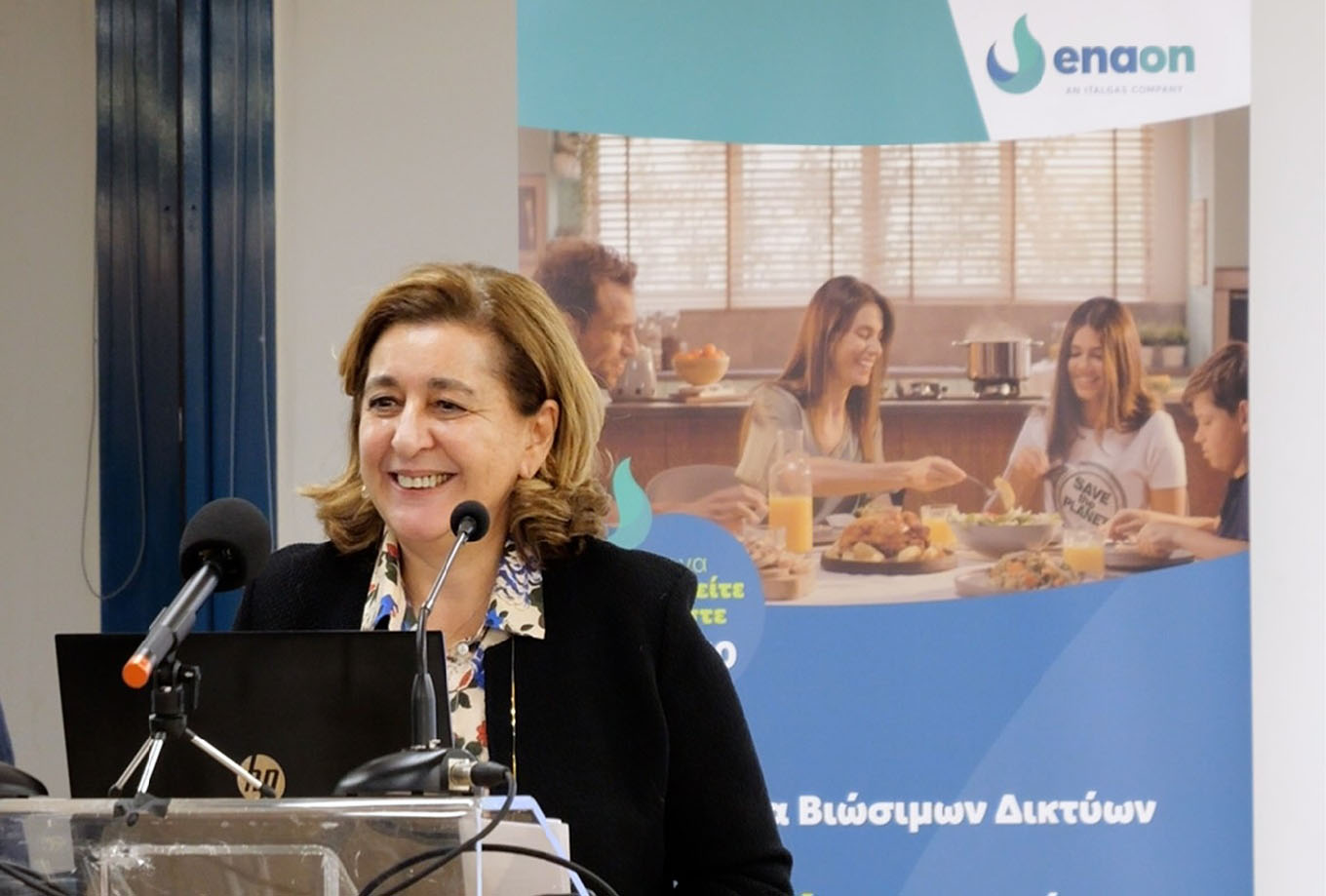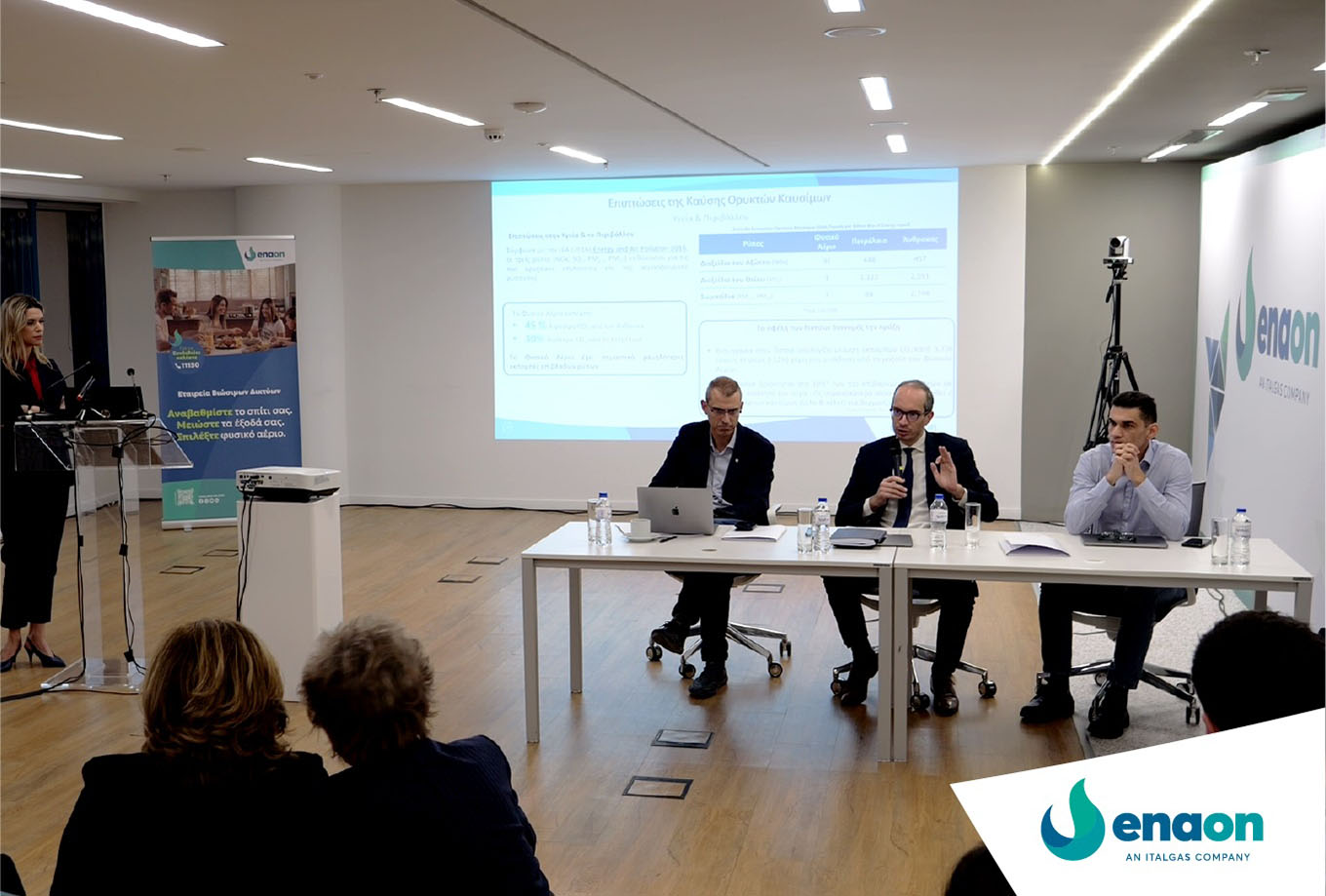According to the study, natural gas technologies are the most cost-effective solution for the renovation of existing buildings, especially in older stock and colder climate zoner.
Enaon successfully held an informative workshop at its headquarters on November 5,2025, attended by representatives from the technical world and energy suppliers, to present a study conducted in collaboration with the National Technical University of Athens (NTUA), entitled: “Life-Cycle Cost Analysis (LCCA) of Energy Interventions in the Hellenic Building Stock with Emphasis on the Replacement of the Heating System / Production of Domestic Hot Water.
The findings of the study, which was conducted under the scientific supervision of Professor Sotirios Karellas of the National Technical University of Athens, with the participation of Dr. Platon Pallis, EDIP NTUA and the valuable support of the company for the collection of the primary data, provides important insights into the most efficient and cost-effective energy interventions for the Greek building sector, highlighting the key role of natural gas distribution networks in the energy transition.
“The energy transition is one of the greatest challenges of our time. Achieving decarbonisation, energy security, and affordability cannot be done through a single pathway. We need multiple solutions working together — electrons and molecules, not as competitors, but as allies in the same transformation”, emphasized the CEO of Enaon, Ms. Barbara Morgante, opening the proceedings of the informative workshop.
“Natural gas, added Ms. Morgate, plays a pivotal role in ensuring a smooth and just transition towards a sustainable future. Its maturity, flexibility, and efficiency make it a stabilising element of our energy mix. The existing natural gas distribution network is a strategic asset of the country that we must leverage, modernise, and make smarter, greener, and more resilient — ensuring that the benefits of the energy transition are shared by all.”
The study assessed the optimal cost-effectiveness of energy interventions in the Greek building stock based on the following parameters: Life Cycle Cost (LCC), Discounted Payback Period (DPP), Primary Energy Consumption (PEC) in three typical buildings (multifamily house, single family house, office building) with four different construction periods and in four different climate zones.
The key findings of the study are the following:
- Natural gas technologies, particularly condensing boilers, stand out as the most cost-effective solution for the renovation of existing buildings—especially in older stock and colder climate zones.
- Electrification technologies, such as heat pumps, can achieve lower primary energy consumption, but typically require significantly higher capital investment and entail longer payback periods.
- Modern gas infrastructure remains a practical and affordable pathway for households and businesses in Greece, allowing the cost of upgrading the heating system to be recouped in a short period of time. These benefits will multiply in the near future when distribution networks also support renewable fuels such as biomethane.
- There is no one-size-fits-all solution—intervention strategies must be adapted to the specific characteristics of each building type, construction period, and geographic region.
- The study reinforces that the energy transition must be realistic, cost-effective, socially inclusive, and technologically open.
Through this initiative, Enaon emphasised the importance of open dialogue with all stakeholders in shaping realistic and effective strategies and solutions that support the transition towards a cleaner and more balanced energy future.

